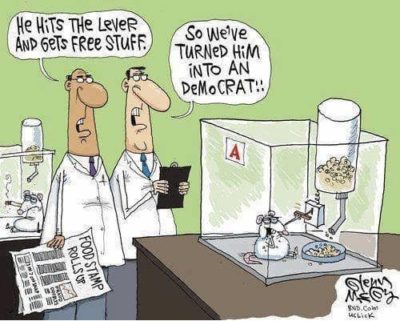Whenever we have a change in control of our political process it is reasonable to expect a change in legislative output. If we assume the prior statement is true N.H. should see noticeable change in the output of the political process. We have flipped the N.H. House, N.H. Senate, and Executive Council.
So let’s talk about regulation. Presumably, we the people here in N.H. have become disenchanted with Democrat control. Their policies were wrong, their methods were wrong or the results of their actions have been deemed unacceptable. Each voter has their own reason for their vote. Cumulatively we voted for change in N.H.
Why does regulation exist? Change in our economic environment affects the demand for regulation. Change can be endogenous (from policies, internal processes) or exogenous (external, technological progress independent of economic forces). There are several factors affecting the demand for regulation. Among these factors are technological change, demographic change, significant change in factor cost and new information. Clearly something has happened in N.H. to change one or more of these factors.
What happens next? How are we going to make our regulatory decisions? Which specific regulatory changes are likely to emerge from the societal and economic changes we have experienced? What potential theories explain the emergence this regulation and how the collective decision will be made?
Introduction of much regulation comes from correcting “market failures”. Market failures are circumstances where markets do not spontaneously and immediately deliver an efficient resource allocation as viewed by those with regulatory power. This is the core of the very inadequate public interest theory.
Bias, rent seeking and other pitfalls
Arthur Pigou wrote a treatise on externalities. It asserts the notion of taxation to align the private and societal costs of goods. It is an attractive theory to Leftists. However, it falls short of explaining how things work in the real world. Among its shortcomings is its assumption of the availability of complete, correct information.
Reality dictates policy makers have their own goals. Policy makers deal with the impacts, legitimate or illegitimate of their own goals and beliefs as they do their jobs. The name of this phenomenon is regulatory capture. It recognizes policy makers do not possess all relevant information. In order to make a meaningful decision they entertain a relationship with vested interests. This is reality and it has the potential for both good and bad potentially.
We can and perhaps should view political processes as markets. In this market rent-seekers demand regulation. Rent-seeking is an economic concept. It occurs when an entity seeks to gain added wealth without any reciprocal contribution of productivity. Policymakers supply rent. Rent seekers are most effective as they either offer the highest bid or reduce the cost of policy proposals to policymakers.
Now let’s talk about getting money for nothing. A policymaker may make a public argument for new regulation affecting a group which has not been previously regulated. The group(s) affected by the proposed regulation/legislation will organize themselves and lobby for or against it. The process allows policymakers to extract rent payments.
At the end of the day, why do you care? You should care because the outcomes become laws and regulations. We will live with and pay for the results. Coming next will be an article on Bootleggers and Baptists. It is a look at making legislative sausage.
